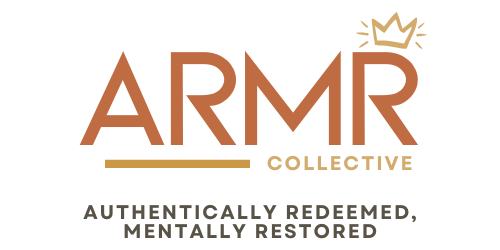Mental Health Awareness Month brings with it an opportunity to shine light on truths that often remain in shadow. Today, I want to talk about something many of us would rather not discuss – addiction. Whether it’s alcohol, prescription pills, illegal drugs, gambling, pornography, or any other substance or behavior that takes control of our lives, addiction carries perhaps the heaviest stigma of all mental health conditions.
“Why Don’t You Just Stop?”
I’ve heard people ask this question, sometimes with genuine confusion, sometimes with judgment: “Why don’t they just stop?” It seems so simple from the outside. Just put down the bottle. Just walk away from the casino. Just delete the apps. Just stop.
But anyone who has struggled with addiction – or loved someone who has – knows the reality is vastly more complicated. The “just stop” mentality reveals a fundamental misunderstanding of what addiction actually is.
The truth?
Addiction is a legitimate mental illness, not a moral failing or a sign of weakness.
According to medical professionals, addiction creates actual changes in the brain’s structure and function. When someone develops a substance use disorder, their brain’s reward pathway becomes increasingly focused on and dependent upon the substance or behavior, while decision-making areas become compromised. This explains why addiction is characterized by continued use despite negative consequences, intense cravings, and withdrawal symptoms when stopping.
These aren’t character flaws but physiological responses – which is precisely why addiction is classified as a mental illness requiring comprehensive treatment, not simply a bad habit needing more willpower.
When Coping Becomes Dependency
Many people don’t set out to develop an addiction. Instead, what often starts as a way to cope with stress, trauma, anxiety, or pain gradually transforms into dependency. The relief that substance or behavior once provided becomes a necessity, and the brain begins to rewire itself around that dependency.
This pattern mirrors what we see in other mental health conditions. Just as someone with depression isn’t choosing to feel hopeless, and someone with anxiety isn’t choosing to worry excessively, a person with addiction isn’t simply choosing self-destruction.
Their brain has been hijacked by a process that began as a solution but became another problem entirely.
The Deeper Truth About Addiction
When I think about addiction from a faith perspective, I see it as part of our fallen human condition that manifests in a specific way. We were created to worship God, but our sinful nature leads us to place other things on the throne of our hearts. In this light, addiction can be understood as a form of idolatry – where a substance or behavior takes God’s place as the primary focus and controlling force in someone’s life.
However – and this is crucial – labeling addiction as idolatry does NOT mean we should shame, condemn, or oversimplify the struggle.
Rather, it helps us understand the spiritual dimension alongside the physical and psychological aspects. All three need addressing for true healing.
The Bible speaks of “strongholds” that can take hold in our lives – patterns of thinking and behavior that become deeply entrenched and difficult to break free from without intervention. Addiction is one such stronghold, requiring not just willpower but community, professional help, and often spiritual support to overcome.
Relapse: Part of Recovery, Not Its End
One of the most heartbreaking aspects of addiction is relapse. After weeks, months, or even years of sobriety, a single moment of weakness can feel like total failure. Both society and the person struggling often view relapse as the end of the recovery journey – proof that they’ll never get better.
But medical professionals view relapse completely differently.
They see it as a common part of the recovery process, not a sign of moral weakness or treatment failure. Just as someone managing diabetes might occasionally have blood sugar spikes despite their best efforts, someone in recovery might experience setbacks that require adjustments to their treatment plan.
Recovery isn’t a straight line; it’s a winding path with hills and valleys. Each relapse, while painful, provides important information about triggers and vulnerable areas that need addressing. The goal isn’t perfect performance but progress and healing over time.
I think about how many times I’ve fallen short in various areas of my life, how many times I’ve needed forgiveness and a fresh start.
The God I know isn’t counting our failures – He’s walking with us through them, helping us learn and grow from each one.
The Person Behind the Addiction
Perhaps the most important thing to remember is that every person struggling with addiction is, first and foremost, a person. They aren’t defined by their substance use disorder.
They’re individuals with dreams, talents, relationships, and value completely separate from their struggle.
When we reduce someone to their addiction (“he’s an alcoholic,” “she’s an addict”), we strip them of their full humanity. We make their identity about their illness rather than seeing them as a whole person who happens to be battling a particular condition.
This dehumanization creates shame, which actually fuels addiction rather than helping overcome it. Shame drives people into isolation, and isolation is where addiction thrives. Connection, community, and compassion are essential components of recovery.
Jesus himself modeled this approach.
He never defined people by their struggles or sins.
He saw the person first – their value, their potential, their true identity beyond whatever battle they were fighting.
For Those Struggling
If you’re reading this and fighting your own battle with addiction, I want you to know:
You are not your addiction.
You are not weak.
You are not a moral failure.
You are a human being with inherent worth and dignity, created in God’s image, and deeply loved.
Your struggle doesn’t define you, and relapse doesn’t erase your progress.
Each day – sometimes each moment – is a new opportunity to make choices aligned with your deepest values and the life you want to live.
Recovery is possible, though rarely straightforward. It typically involves multiple approaches working together – professional treatment, support groups, sometimes medication, and therapy. For many, spiritual resources provide crucial strength along the way. Recovery is challenging because it requires healing the whole person – addressing physical dependency, psychological patterns, social connections, and finding purpose beyond the addiction.
Recovery might look different than you expected. For some, it means complete abstinence. For others, especially with behavioral addictions like food or technology, it means learning to develop a healthier relationship with something you can’t entirely eliminate.
Whatever path your recovery takes, remember that you don’t have to figure it out alone. Reach out for professional help. Connect with support groups where others understand your struggle. Consider whether medication might be appropriate for your situation. Work with a therapist to uncover and heal the underlying wounds that may be driving your addiction.
And if faith is part of your life, remember that God specializes in redemption stories.
No one is beyond the reach of healing grace.
For Those Who Love Someone With Addiction
If someone you love is struggling with addiction, I know your heart is heavy. You’ve likely experienced a rollercoaster of emotions – anger, fear, disappointment, helplessness, and profound sadness. You’ve probably wondered what you could have done differently or how to help without enabling.
But you can support without controlling. You can love without shaming. You can set boundaries without abandoning. And most importantly, you can recognize that their recovery isn’t ultimately in your hands.
This might mean educating yourself about addiction as a mental illness while finding your own support system through groups like Al-Anon. It involves setting clear, consistent boundaries about what behaviors you will and won’t accept, offering to help them find professional treatment when they’re ready, and taking care of your own mental, emotional, and spiritual health throughout the process.
Remember that you didn’t cause their addiction, you can’t control it, and you can’t cure it.
But you can respond with compassion while protecting your own wellbeing. Taking care of your own mental health isn’t selfish – it’s necessary.
How Faith Communities Can Help
Churches and faith communities have a unique opportunity to be part of the solution when it comes to addiction. Too often, however, they’ve been part of the problem – creating environments where people feel they must hide their struggles or risk judgment and rejection.
What would it look like if our faith communities became safe harbors for those battling addiction?
Places where people could speak honestly about their struggles without fear, where recovery was celebrated as a spiritual journey, where professional treatment was encouraged alongside spiritual support, and where both accountability and grace were freely offered. Such communities wouldn’t just benefit those with addiction – they would become more authentic places for everyone, acknowledging our shared brokenness and need for healing in different areas of life.
A Way Forward
As people of faith, we’re called to carry one another’s burdens. When it comes to addiction, that means educating ourselves about its nature as a mental illness, challenging our own judgments and preconceptions, creating spaces where people can struggle honestly without fear of rejection, advocating for access to professional treatment, and being willing to walk alongside someone for the long journey of recovery.
Addiction thrives in darkness and shame. By bringing it into the light of understanding, compassion, and truth, we take the first steps toward healing – both for individuals and for our communities.
The journey may be long and winding, but hope remains constant. With proper support, professional help, and compassionate community, many find their way to a life beyond addiction’s grip – a life of freedom, purpose, and connection that once seemed impossible.
If you or someone you love is struggling with addiction, please know that help is available. The Substance Abuse and Mental Health Services Administration (SAMHSA) offers a free, confidential helpline at 1-800-662-4357 that provides information and treatment referrals 24/7.




One thought on “The Illness We Mistake for Choice: Addiction Beyond Stigma”